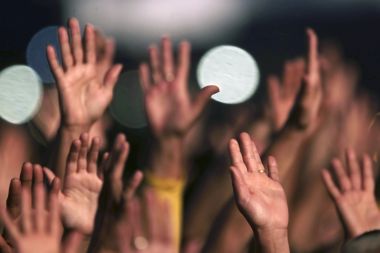Segregating Sundays: how Martin Luther King's words still ring true after 50 years

American churches are still segregated along racial and ethnic lines, despite aspirations to the contrary, according to a study released by LifeWay Research this week.
Research into pastors' views on ethnicity and the Church found that 85 per cent of pastors believe churches should strive to be ethnically diverse, but 86 per cent said their church communities predominantly belong to one racial or ethnic group.
The findings echo the words of Dr Martin Luther King, who 50 years ago famously said that "the most segregated hour of Christian America is eleven o'clock on Sunday morning".
"Everybody wants diversity, but many don't want to be around people who are different," said Ed Stetzer, president of LifeWay research.
The survey of more than 1,000 Protestant US pastors was conducted by the Christian resource provider in September 2013.
More than 90 per cent of those questioned said local churches should reflect their local communities with regard to race and ethnicity.
Pastors in the South were the most likely to disagree with the statement that their churches had a similar ethnic mix to the surrounding area. Although only 12 per cent said they "strongly disagreed" with the statement, pastors in this region were also the least likely to "strongly agree".
But when asked whether churches should strive to achieve diversity, pastors in the South were more enthusiastic in their support than those in the Midwest, with 70 per cent saying they "strongly agreed".
In an additional study from an online survey of 1,039 Americans, 78 per cent said they thought churches should strive to achieve racial diversity. The strongest affirmative response came from those who described themselves as born-again, evangelical or fundamentalist Christians.
Researchers found that just over half (51 per cent) of respondents said they would be most comfortable attending a church where people from multiple ethnicities were represented, and four in 10 said they already attend an ethnically diverse church.
Even so, 19 per cent still said they would prefer to attend a church where people were mainly of the same ethnicity as them.











